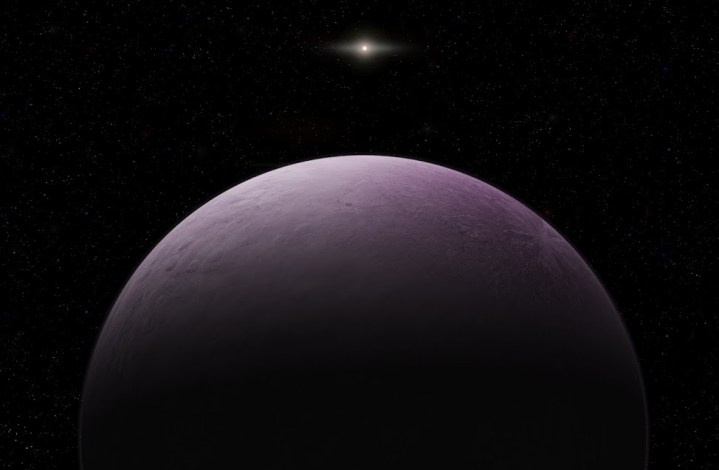
Late last year, a team of astronomers discovered what was then the most distant body observed in our solar system, nicknamed FarOut, while searching for the mysterious hypothesized Planet Nine. Now the same team has discovered an even more distant objected jauntily dubbed “FarFarOut.”
Astronomer Scott Sheppard found himself with time on his hands when a snow blizzard resulted in the delay of a talk he was giving at his institution, the Carnegie Institution for Science in Washington, D.C., on the Planet Nine hypothesis. Instead of curling up with a blanket and a hot cocoa like most of us do on snow days, he decided to pore through the data gathered on the objects at the edges of our solar system.
Sheppard located an object which is a massive 140 times further away from the sun than the Earth is, or 140 astronomical units (AU). That’s 3.5 times the distance from the sun as Pluto, and further than FarOut’s distance of 120 AU. The orbit of FarFarOut is not yet known, as it is so far away that it will take months or even years to gather data on the position of the object at different points in time. This means that FarFarOut could turn out to be slightly closer at 130 AU or even further away at 150 AU. The object is estimated to be 250 miles (400 kilometers) in length, making it a dwarf planet like Pluto, but is so far away that it is observable only as a tiny pinprick of light.
As well as FarOut and FarFarOut, Sheppard and his colleagues Chadwick Trujillo from Northern Arizona University and David Tholen from the University of Hawaii were responsible for locating a dwarf planet called Goblin at 80 AUs last year. The trio scour the Kuiper belt searching for distant objects to understand the workings of the solar system.
“It’s exciting to be looking at sky that no one has ever imaged as deeply as we are,” Sheppard told Gizmodo. “To paraphrase Forrest Gump, each image we take is like a box of chocolates — you never know what you’re going to find.”
Editors' Recommendations
- Object ‘Farfarout’ confirmed as the most distant object in our solar system
- Discovery of 139 new minor planets in our solar system may help find Planet Nine
- Tiny dwarf planet discovered in our solar system is one-fifth the size of Pluto




